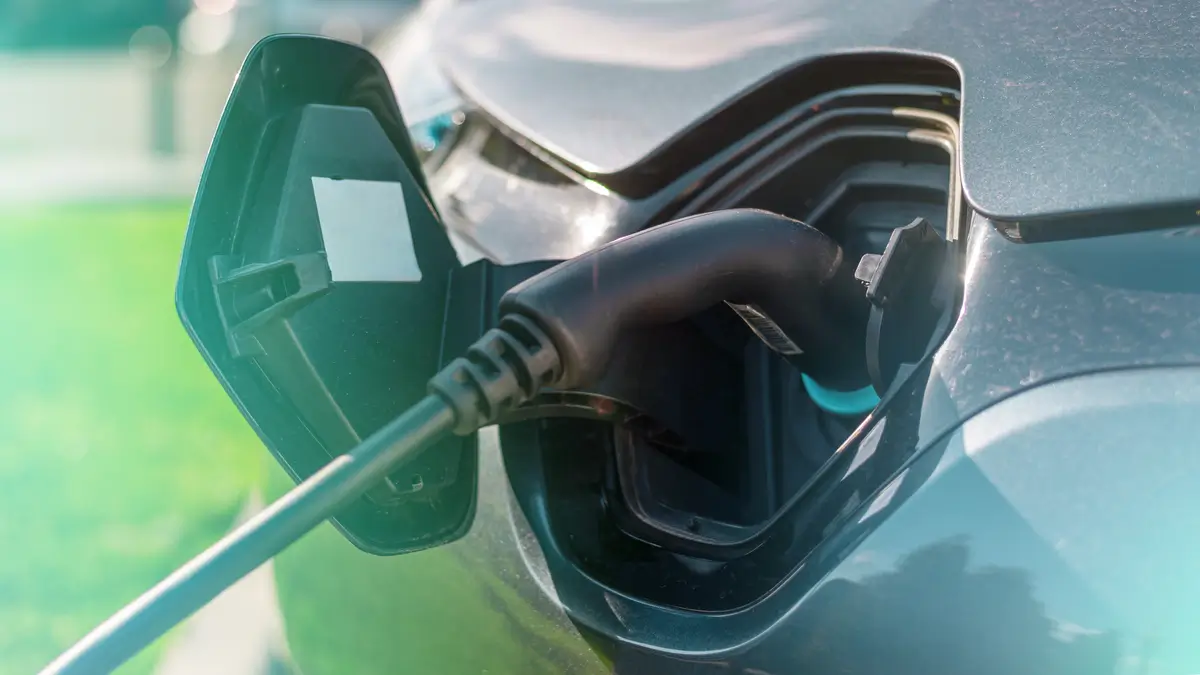Battery Dry Rooms
A battery production dry room is a specialized manufacturing environment designed to control the level of humidity and moisture in the air during the production of batteries. The dry room is typically a sealed, temperature-controlled chamber that is kept at a very low humidity level, usually below 1% relative humidity.
Battery dry rooms prevent moisture from interfering with battery production, which can lead to defective batteries and reduced overall product quality. The environment is designed to be contaminant-free, as even small amounts of particulate can compromise your entire production line.

Ready when you are.
Why Proper Battery Dry Room Setup Matters
Minor fluctuations in humidity or temperature lead to compromised energy storage capabilities, shortened battery lifespan, and dissatisfied customers. Moisture can also corrode the electrodes, resulting in lower battery performance and a reduced lifespan. Precision Environments’ battery production dry rooms are equipped with air conditioning and dehumidification systems to maintain the desired level of humidity. When battery manufacturers depend on maintaining conditions below 1% relative humidity, there’s no room for error.

Industry Standards and Regulations
Battery manufacturing operates under strict regulatory frameworks, including FDA guidelines for medical device batteries and automotive industry standards for EV applications. These requirements ensure worker safety and product reliability.
Critical Components of an Effective Battery Dry Room
Dry room success depends on several key components. These components work synergistically to create optimal conditions for lithium-ion battery manufacturing while ensuring product integrity and safety:
Moisture control:
Batteries contain various materials that can be affected by humidity, such as electrolytes and separators. High humidity levels can cause these materials to absorb moisture, which can change their chemical properties and affect battery performance.
Safety:
Certain battery materials can react with water or moisture, causing corrosion, degradation, or even dangerous chemical reactions. Humidity control can prevent these reactions from occurring, ensuring the safety of workers and the environment.
Consistency:
Humidity control is critical for maintaining consistency in the battery production process. Variations in humidity can affect the physical and chemical properties of the battery materials, leading to inconsistencies in the final product.

Quality Control:
Proper humidity control is necessary for ensuring the quality of the finished battery product. High humidity levels can lead to defects in the battery, such as short circuits or electrolyte leakage, which can affect the battery’s performance and reliability.

Contamination prevention:
Airlock entries and tight-sealing doors prevent moisture infiltration and maintain the controlled environment by creating barriers between the dry room and external conditions.

Explore our battery production cold room solutions for specialized temperature-controlled manufacturing applications.
Installation and Setup Process
Our process starts with a comprehensive site assessment, followed by systematic installation of equipment and infrastructure. Every component must be correctly configured and optimized for your unique production needs. The process concludes with rigorous testing to verify system integrity and operational readiness. Whether you’re building a standalone dry room or a gigafactory cleanroom, our approach ensures optimal performance.
Room Construction Requirements
Battery production dry room construction requires specialized materials capable of sustaining positive pressure while maintaining ultra-dry conditions. This demands expertise in moisture-resistant materials, vapor barriers, and structural components that can handle the unique stresses of maintaining extreme environmental conditions.
Environmental Control Equipment Placement
The strategic placement of environmental control equipment determines the effectiveness of your dry room. Air extraction units, dehumidification systems, and monitoring equipment must be positioned to ensure optimal airflow patterns and uniform conditions throughout the space. This requires careful planning and precision engineering to eliminate dead zones and maintain consistent environmental parameters.
Monitoring System Integration
Your dry room is only as reliable as your ability to monitor and control it. Integrated monitoring systems provide real-time data on humidity levels, temperature, and air quality, enabling immediate response to any deviations from optimal conditions.
Sensor Placement

Strategic sensor placement throughout the room ensures accurate measurement of dew points and humidity levels at critical production areas. These sensors become your early warning system, detecting potential issues before they impact production quality.
Data Collection Systems

Systematic data collection from sensors enables continuous monitoring and process improvement. This data is important for regulatory compliance, quality control, and optimizing your dry room's performance over time.
Maintaining Optimal Conditions
Maintaining optimal dry room conditions requires ongoing attention and systematic care. Advanced sensor technology and automated control systems detect minute environmental changes and respond quickly to maintain required standards. Regular equipment maintenance and adherence to operational protocols ensure these conditions are sustained over time, protecting both your investment and product quality.
Ready to Transform Your Battery Production?
Your battery production operations deserve the precision and reliability that only a properly designed dry room can provide. Precision Environments custom builds battery dry rooms that deliver the ultra-low humidity control and contamination-free environments your production demands. From concept to certification, we ensure your facility meets the strictest industry standards while maximizing your return on investment.
With over 30 years of controlled environment expertise, we understand that your battery dry room is the foundation of your product quality and competitive advantage. Our turnkey approach means you get a partner who handles every detail, from initial design through ongoing maintenance, so you can focus on what you do best: producing superior batteries.